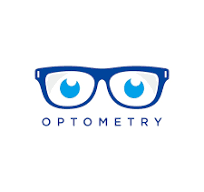BSc Optometry
BSc Optometry Course Details:
BSc in Optometry is a 3-4 year undergraduate course that trains students in the science of vision and eye care. The course provides in-depth knowledge about the diagnosis, treatment, and management of various eye disorders and visual problems, using corrective measures such as glasses, contact lenses, and low vision aids. It also focuses on understanding the anatomy of the eye, visual systems, and advanced diagnostic tools used in optometry practice.
Course Structure:
The BSc Optometry course typically includes both theory and practical training. Students also complete internships in hospitals, clinics, or optical centers to gain hands-on experience.
Year-wise Breakdown:
-
Year 1 (Foundations of Optometry):
- Basic subjects like Anatomy, Physiology, and Biochemistry of the eye.
- Introduction to Optometry, Optics, and Visual System.
- Principles of refraction, basic eye diseases, and optical instruments.
-
Year 2 (Clinical Training and Techniques):
- Advanced Optics and Refraction techniques.
- Understanding common refractive errors (Myopia, Hypermetropia, Astigmatism).
- Techniques in contact lens fitting and low vision aids.
- Introduction to ocular pharmacology and basic clinical practices.
-
Year 3 (Advanced Optometry Practices):
- Clinical Optometry (working with patients).
- Diagnosis and management of various eye diseases such as cataracts, glaucoma, and diabetic retinopathy.
- Dispensing and prescription of corrective lenses.
- Community-based optometry practices and optical dispensing.
-
Year 4 (Internship and Research):
- Internship at hospitals, eye care centers, and optical clinics.
- Practical experience with advanced diagnostic equipment (retinoscope, slit lamp, tonometer).
- Research and evidence-based practice in optometry.
- Preparation for licensure or professional certification exams.
Subjects Covered:
- Ocular Anatomy and Physiology
- Basic Optics and Visual Optics
- Optometric Instruments and Techniques
- Refractive Errors (Myopia, Hypermetropia, etc.)
- Clinical Diagnosis and Eye Diseases
- Contact Lenses and Low Vision Aids
- Ocular Pharmacology and Therapeutics
- Clinical Practice and Patient Management
- Public Health Optometry
Eligibility Criteria:
- Educational Qualification: Candidates must have completed 12th grade (Higher Secondary) or equivalent with Physics, Chemistry, and Biology as core subjects. Some institutions may also accept students from a Commerce or Mathematics background (if they have completed 12th with Physics).
- Minimum Marks: Generally, a minimum of 50% marks is required in the 12th grade (this may vary by institution).
- Entrance Exams: Some universities may conduct entrance exams, while others admit students based on merit (12th grade marks).
Career Opportunities After BSc Optometry:
- Optometrist: Work as a primary eye care professional, providing vision tests, diagnosing eye conditions, and prescribing corrective lenses.
- Optical Retail Stores: Work as an optical dispenser, advising customers on eyeglasses and contact lenses.
- Vision Therapist: Specialize in therapeutic treatments for vision problems.
- Clinical Optometrist: Work in hospitals and eye clinics, providing clinical care and managing patients with eye diseases.
- Low Vision Specialist: Specialize in aiding individuals with low vision using specialized optical aids.
- Research and Development: Engage in research activities in vision science, optometry technology, and optical product development.
- Teaching: After further qualifications or certification, you can teach at optometry colleges.
Fees for BSc Optometry:
The fees for BSc Optometry courses vary based on the institution, location, and type of college (government or private). Here's an approximate range:
-
Government Colleges:
- Tuition fees generally range from ₹30,000 to ₹1,00,000 per year.
- Additional fees (library, lab, exam fees) may cost around ₹5,000 to ₹15,000 per year.
-
Private Colleges/Universities:
- Tuition fees usually range from ₹1,00,000 to ₹2,50,000 per year.
- Additional fees for facilities and other services can range from ₹10,000 to ₹50,000 per year.
-
Top Private Colleges:
- In some prestigious private institutions, fees can range from ₹2,00,000 to ₹4,00,000 per year.
Scholarships and Financial Aid:
- Government Scholarships: Various state and central government scholarships may be available for eligible students (based on merit, income, or category).
- Merit-based Scholarships: Some private institutions offer merit-based scholarships to students with high academic scores.
- Educational Loans: Students may also avail of loans from banks and financial institutions to cover tuition and living costs.
Popular Institutions Offering BSc Optometry:
- Manipal University, Manipal
- Amity University, Noida
- Dr. Shroff’s Charity Eye Hospital, New Delhi
- Sri Ramachandra Institute of Higher Education and Research, Chennai
- Mahatma Gandhi Mission College of Optometry, Mumbai
- Gandhi Institute of Technology and Management (GITAM), Visakhapatnam
Conclusion:
A BSc in Optometry provides students with the necessary knowledge and clinical skills to work as optometrists and contribute to the growing field of eye care and vision health. The career prospects are diverse, with options to work in hospitals, optical clinics, research centers, and retail businesses. The fee structure varies, and students should look for scholarships and financial aid opportunities to ease the burden.


